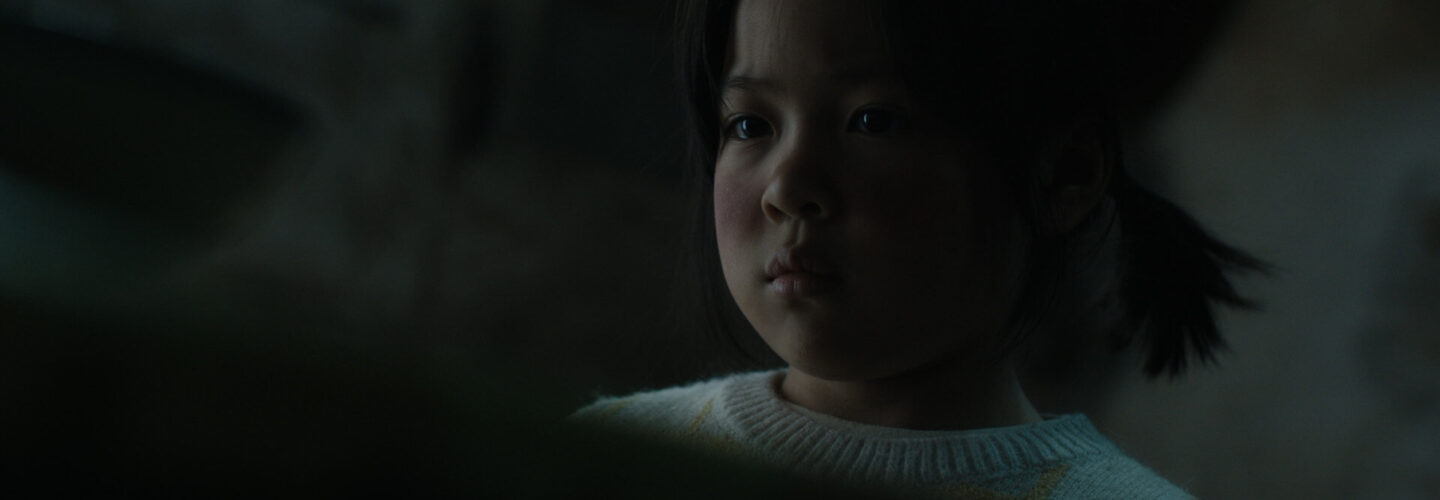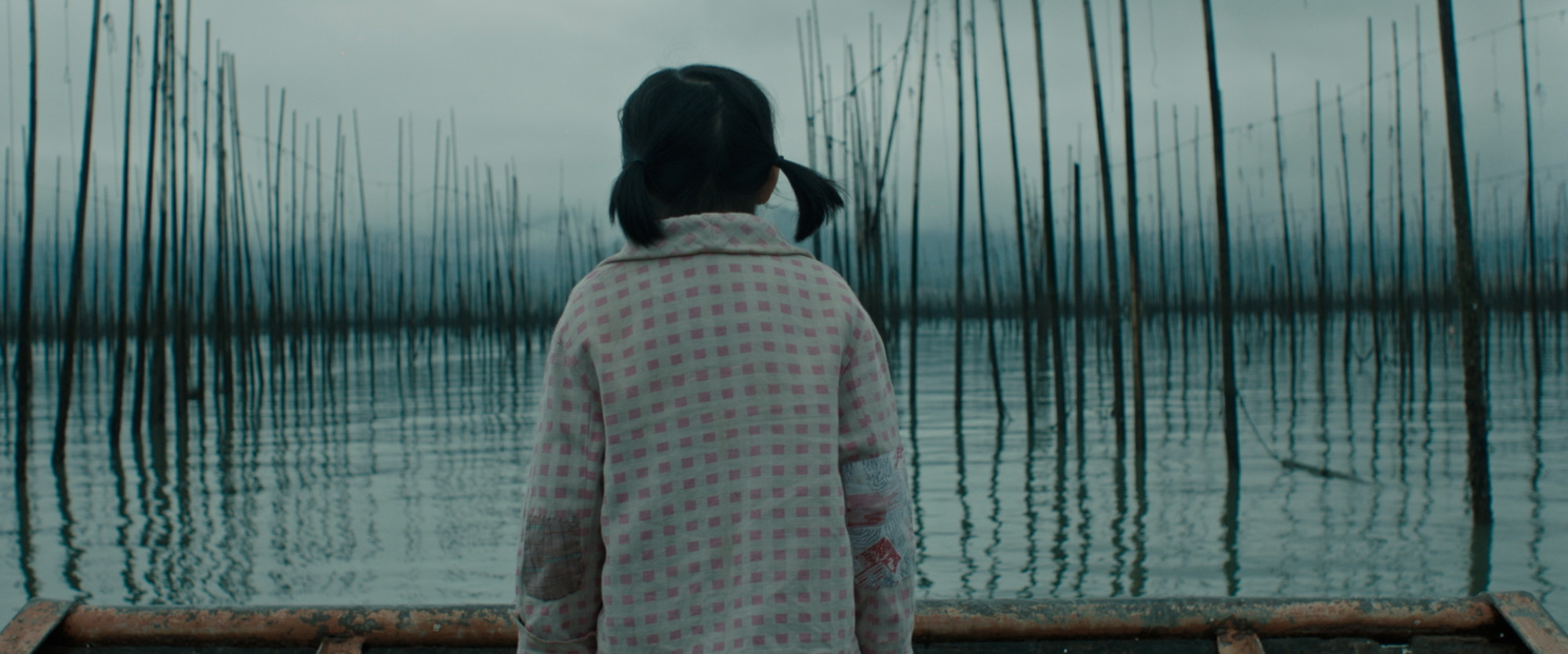
The harrowing effects of China’s historical plight with child abandonment over its one-child policy in impoverished communities is powerfully explored in Pearl. From the vision of Yuchao Feng (last seen on DN here), we are put into the shoes of an innocent girl when her world is changed forever. The short is inspired by Feng’s own mother’s experience of abandonment as a child which adds a chilling realism to the piece. DN spoke with Yuchao and Producer Linhan Fang to take us into the thought process behind bringing the story to screen.
Pearl is a film inspired by a life-changing conversation you had with your mother in 2017. When did you realise this was a story you wanted to share with the world?
The idea for the film first began with an unexpected phone call from my mother roughly two years ago in New York (which was past midnight in China where my mom was calling from). It was shocking not only because my mother and I had grown rather distant (my parents were not always around when I was growing up in China, and we talked even less after I went to the US for college), but especially because of the contents of the phone conversation.
Essentially, my mother revealed to me that she had a horrible nightmare about her own mother, a nightmare that she’s been having since she was six years old. She then proceeded to tell me why she’s been having these nightmares, which evidently was because she was abandoned by her mother when she was six years old.
I felt this sudden urge to dig deeper into my mother’s mind and to get to know her better. It was this goal that led me to write and direct this film.
“I think I’m probably never going to be able to forgive her”, she told me. After hearing this story, I was shocked. At the time of this phone call, my mother was about forty-five, which meant that she’s been having these nightmares for forty years. As the conversation unfolded, a piece of buried memory was unveiled. For the first time, I actually felt I was getting closer to this woman who I actually didn’t know much about. I felt this sudden urge to dig deeper into my mother’s mind and to get to know her better. It was this goal that led me to write and direct this film.
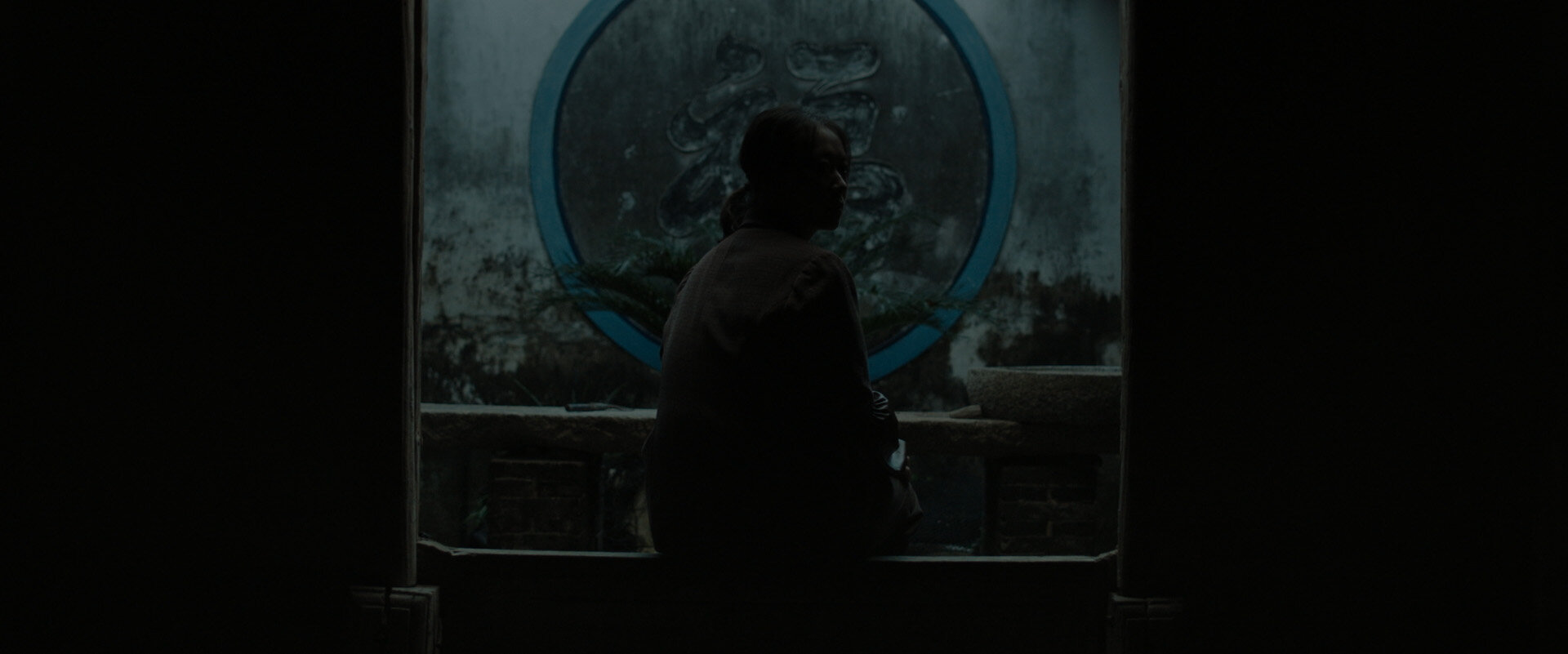
The one-child policy that affected many families during this time period in poor Chinese communities is something that is at the heart of Pearl’s conflict, and although we’ve recently seen features such as One Child Nation and So Long, My Son, is this a subject you felt wasn’t being given enough attention?
Although I’d say that the one-child policy wasn’t necessarily the main theme that I had hope to discuss in this movie, it is undeniable that the decision that the mother had to make in this movie had a lot to do with that policy and it is definitely something that has affected a lot of young people in China, especially my generation, both socially and mentally. I do wish that this film could, in any capacity, bring this subject to people’s attention again but if it doesn’t, then I would at least hope that those who have the chance to come across this little short film get the message to look at the people around them and treasure the ones they love.
The narrative of Pearl is predominantly told through the eyes of a child as we see her world torn apart, was visualising that struggle a challenge?
The decision of telling of the story mainly through Lin’s perspective formed pretty naturally and felt right I would say. The world is big but not for that little girl. Her mother, her brother, the old house, the seashore and the water, that’s all she has. For me, to really try to understand what she had to go through and what she might feel, felt like the only way to do it. My challenge was mostly in the writing process because it is a rather simple story if you were to describe it with one sentence, so how I would write it in a way that’s not so obvious and cliché while keeping the emotion truth, that was the hardest part.
The other part was working with two amazing actors who are also happened to be two eight-year-old kids. It was a tough but fruitful experience. I knew it was going to be gruelling working with two very young children (around seven/eight years old) so I did prepare and really tried to communicate with them in a clear yet friendly way. What I learned is that we can push the young actors (they may surprise with the depth within their performances) but only up to a point. Kids do get tired, and I think it’s important to understand that they do eventually need to rest. Giving them a comfortable atmosphere where they could rest and still be children outside of filming takes ensured that they had enough energy and emotional capacity to film the scenes required of them.
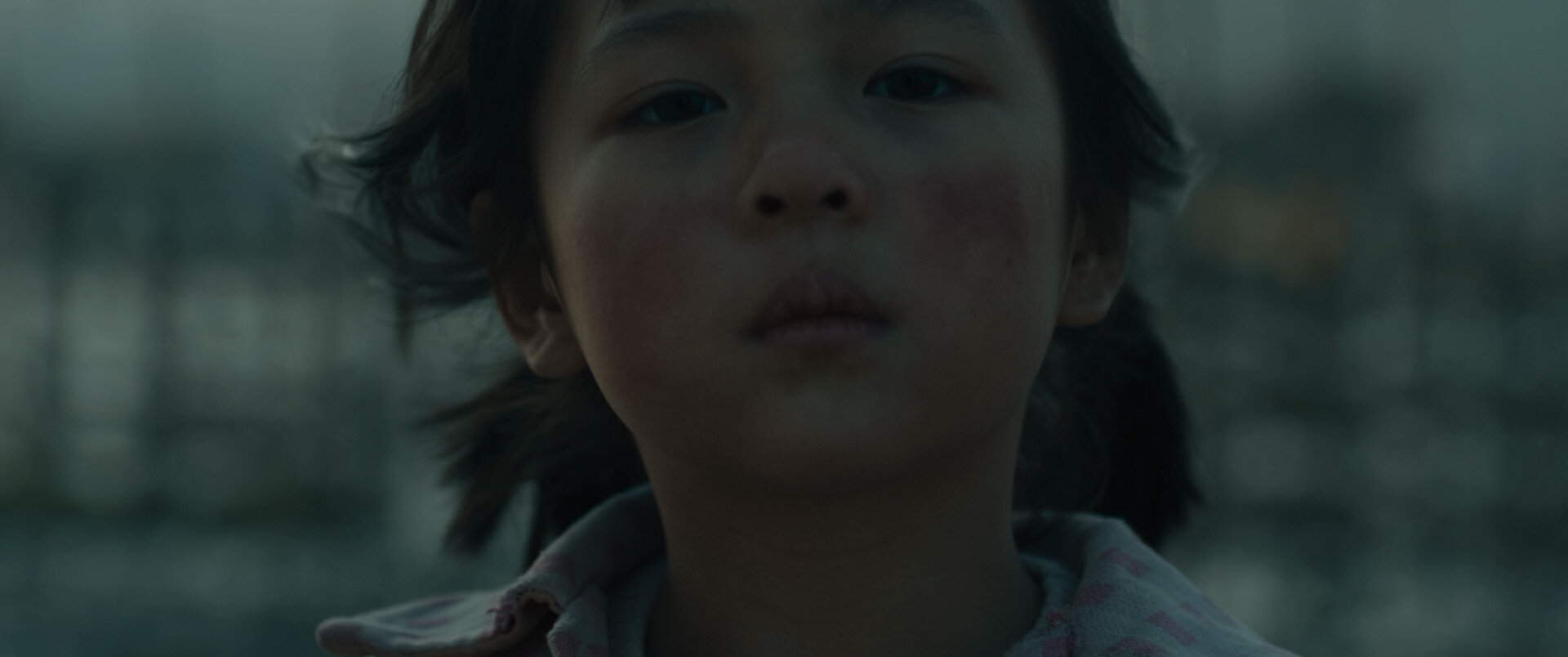
Yating Cao’s debut performance is at the heart of Pearl’s heartbreak. I understand you went through a pretty arduous process trying to find the perfect actor.
I first started by visiting multiple local preschools hoping to find the perfect young actress but to no avail. Soon enough, we started to really push our connections (i.e. my girlfriend’s father was a principal at one of the schools), and if we knew anyone that might possibly have any link to a school, we immediately used it. I must have met over a hundred young girls for the role before I ended up at a dancing class in a school my Aunt teaches at.
This is the dancing class where I eventually found our young actress Yating, but the courting process was difficult. Most of the girls in class who heard about the chance to be on camera were rejoiced by the idea of possibly becoming a “movie star”, but not Yating. She showed no apparent interest in acting for camera and was somewhat more introverted than the rest of the candidates. Yet, her somewhat rebellious attitude and sensitive demeanour really showed me that she might just be the perfect actress for the role. Eventually, I spent an incredibly lengthy amount of time persuading her mother to let her act in our film, and that’s how we finally landed our young actress.
My challenge was mostly in the writing process because it is a rather simple story if you were to describe it with one sentence.
There is a lack of a score to Pearl instead relying on the ambient noises of boats, the sizzling of frying pans or the dripping of a tap. What was the reasoning behind this decision?
That could be a personal taste thing where I am all for intentionally and well-crafted sound designs rather than asking too much from heavy scores. Of course, there are amazing scores used in all kinds of movies, but I guess it’s just not for this one. I made the decision of using as little score as I could in the film very early on to make sure I stayed truthful to what the emotions call for.
I remember a lot of sounds from childhood when I visited my mother’s hometown. The sound of the wind, the waves and the swaying bamboo boats. All these sounds stored memories and at the same time, they were all music to my ear and I thought they shouldn’t go to waste if I was going to make a movie there.
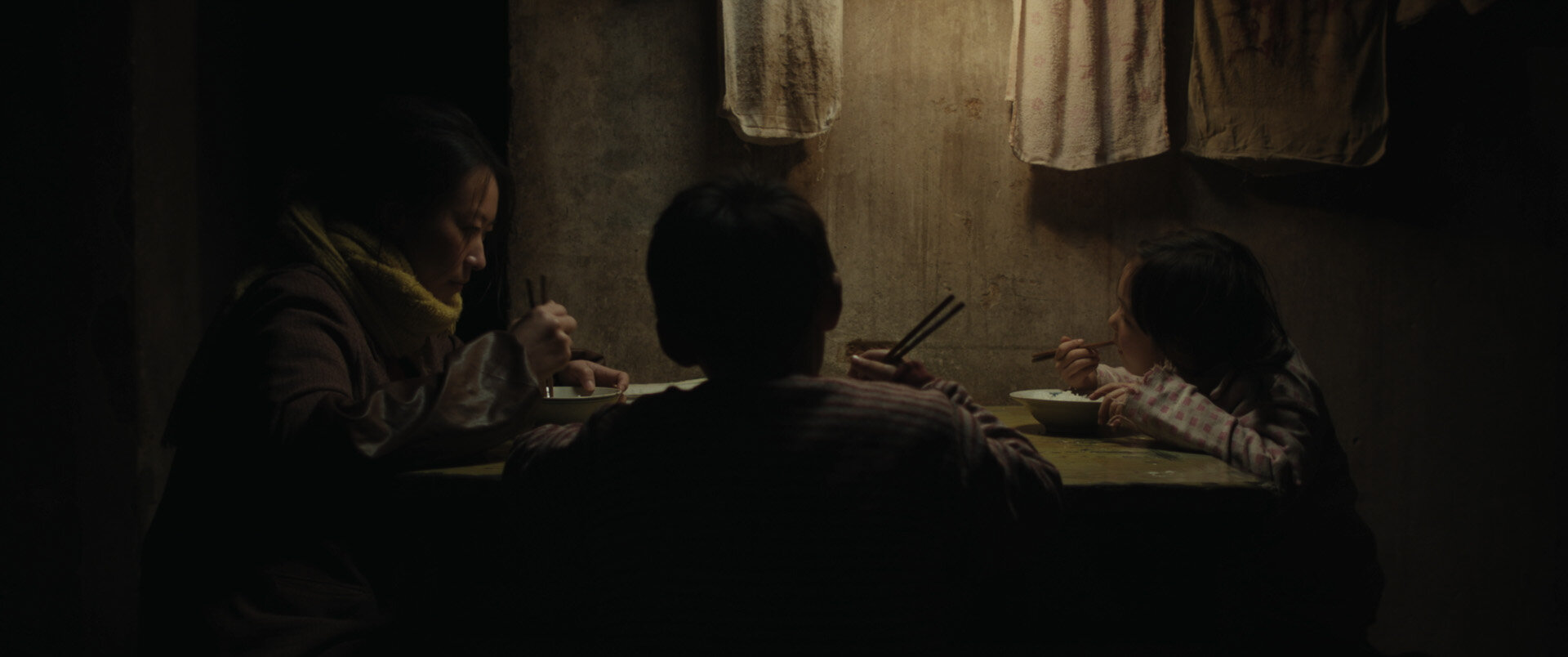
The film’s location helps to integrate the audience into the harsh realism of its world, how important was shooting the film in Xiapu county?
We shot the film on location in my mother’s hometown where her childhood abandonment happened. I vaguely remember visiting the village a few times when I was younger, but I wasn’t really able to appreciate the beauty of the scenery back then. When I returned to the village two years ago to scout for the movie, I was amazed by the captivating nature of the location. It was at once painful to be in the sombre locale of my mother’s tragic upbringing yet also strangely liberating to be able to capture the unique aesthetics on film. We tried to stay true to my mother’s experience and being there definitely gave me a sense of what it was like back then when the abandonment happened.
Pearl has been received with wide critical acclaim as it’s traversed the festival circuit, what’s next?
I’ve just finished shooting features in China as the cinematographer and I am gearing up to make another short that themed around the recent breakout of the coronavirus in China.

